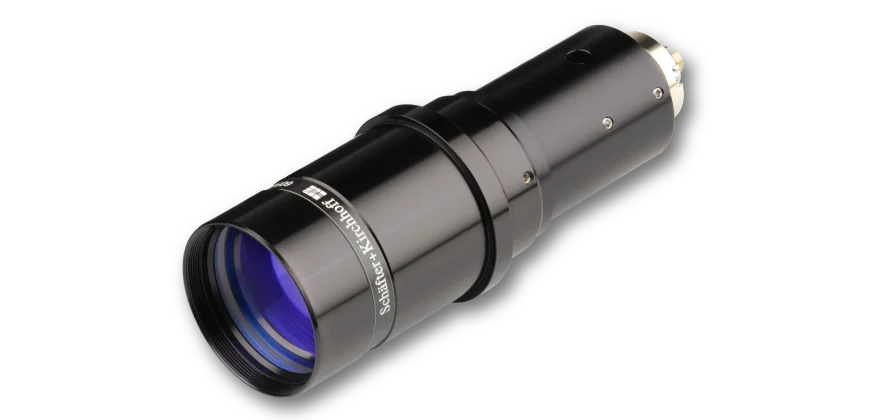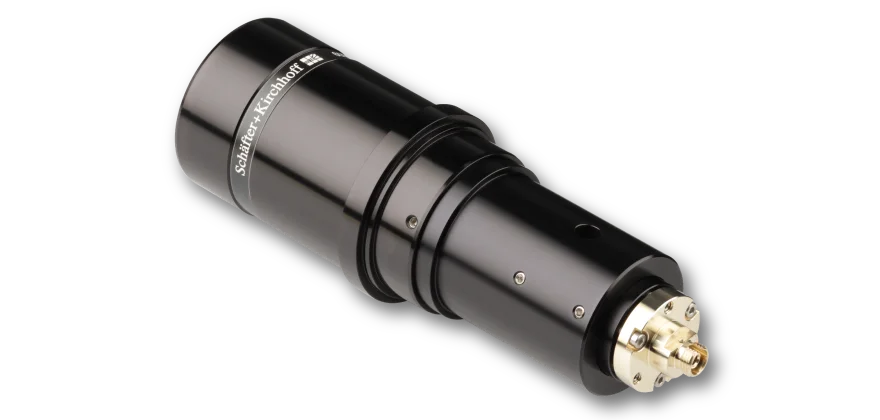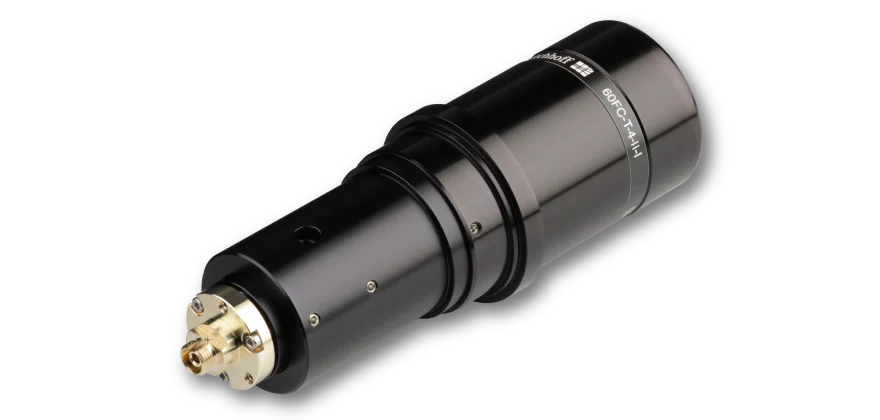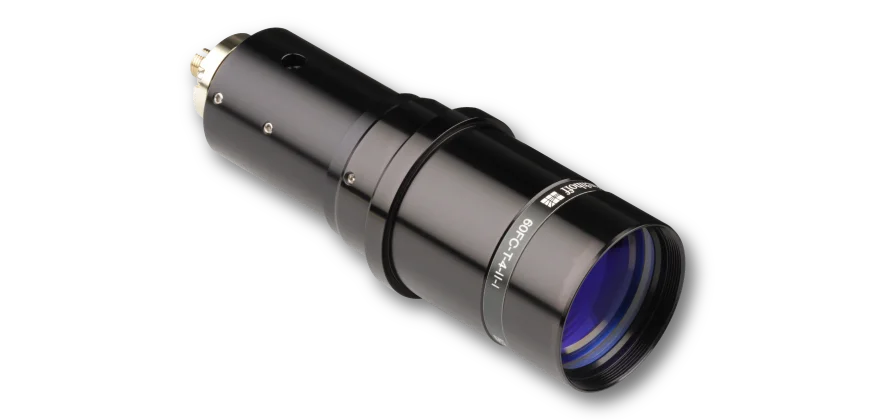The fiber collimators series 60FC-T is designed for collimating radiation
exiting optical fiber cables with high pointing stability.
They can also be used in reverse-mode as fiber incouplers. They are suitable for
single-mode and polarization-maintaining fiber cables leading to collimated beams
with a Gaussian intensity profile.
The features of the collimator type 60FC-T include:
Optics
The
monochromat
with focal length 125 mm is designed for collimating single wavelengths.
It is AR-coated for 630 - 1080 nm.
It is corrected for spherical aberrations and designed to have a good beam quality
over a wide spectral range. That means that it leads to a beam with an M2
< 1.1 if combined with typical high-quality single-mode fibers.
The focus position varies strongly
with wavelength so that the collimator has to be recollimated after any changes to
the wavelength. It is not suitable for UHV applications.
Adjustment of focus and TILT
The distance between fiber end-face and collimating optics is adjusted by means
of an eccentric key. The lens does not rotate when adjusting the focus. The final
focus setting is locked by means of two radially arranged clamping screws.
Additionally, attachment optics of series 60FC-T can be mounted to the
front of the collimator. Additionally, the collimator has an integrated TILT
adjustment for aligning the beam axis to the mechanical axis. This prevents
vignetting of the collimated beam as well as diffraction arising from the clipped
beam.
Optimum lens performance
The angled polish of connectors of type APC is considered by a
pre-angled mechanical coupling axis that compensates the beam deflection and
you can use the lens centrically. This minimizes aberrations simply resulting
from a non-ideal beam path through the lens.
Connector Type
The fiber collimator is equipped with a FC-APC type receptacle.
Because of the spring-loaded fiber ferrule the fiber collimator has an additional grub
screw to increase pointing stability.
Material
The fiber collimator type 60FC-T is made from nickel silver/aluminum (standard)
Mounting
The collimator possesses a flange for low-strain mounting e.g. using the
clamp collars series CC.




